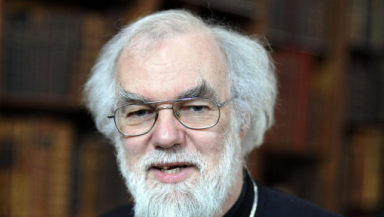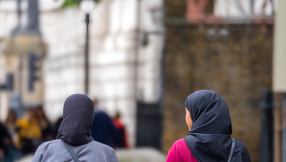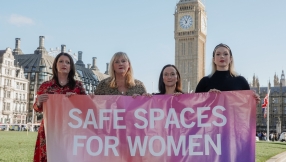
"Cities need lots of imagination to work," said the former Archbishop of Canterbury Lord Rowan Williams at an event in St James's Church Piccadilly yesterday.
He was speaking to a mainly Christian and Muslim audience on the themes of the city, spirituality, and trust.
Lord Williams spoke about how spirituality was vital for holding cities together into the future, giving people "a vision of human dignity" and transcending diversity.
"Either the city is a challenge for our imagination, or it is a desert and chaos," Lord Williams explained, as he spoke about the need for imagination to see past differences.
He discussed the need to understand the stranger, saying, "I am not going to be fully human without that person."
Spirituality was, he said, a means of better achieving the vision of a unified city, saying, "Urban faith is something which at its best can be part of the process, providing respect for people who belong together."
However, he distanced himself from the usual definition of spirituality.
"Spirituality is a modern word… it seems to say that religious belief is a bit difficult and not all that attractive, but we quite like the warm feelings," he said.
"Spirituality isn't about cultivating feelings ... the spiritual life is not some corner of our existence.
"The spirit is bigger than the body."
He suggested people needed to be realistic about diversity.
"You mustn't try and deny it," he said. "God did not say 'get lots of people to agree with you and then begin doing the work you need to do'… the task isn't to turn diversity into uniformity."
He referred to the need not only to be clear about the truth of diversity in the city, but also to ask God for clarity on the question of "what is my own selfishness stopping me from doing". In this, he encouraged all present to take part in daily prayers or meditation.
He also talked about the spirit of God as being one of connection, and the need to embrace that by attempting to reach across boundaries. In this, he gave the example of his daughter who went from a school of very privileged and wealthy people to go to an underprivileged school to help form debating societies.
He referred to the Bible's talk of "interdependence" and St Paul's discussion of the Body of Christ in 1 Corinthians 12.
Speaking about the current situation of income equality within cities, he spoke of the deep distrust that exists because "those at the bottom do not trust that those in charge at the top are ruling with their best interests in mind… they are not entirely wrong".
In explaining the need to counteract that, he said: "Trust begins in a confidence that the human world can belong together."
Lord Williams was then asked about many different subjects, including the need for teens to be careful about the internet.
Although he did not share the fear that social media will turn the young into a generation of "screen obsessed zombies", he cautioned younger members of the audience on seeing people "face to face… which is not necessarily the same as facetime".
He also was asked about the need to feminise a highly patriarchal church, and explained that there was "a vicious cycle… in that the Abrahamic religions are often born into patriarchal societies… religious patriarchy reinforces social patriarchy, which reinforces religious patriarchy".
In conclusion, he encouraged people to ask that God give them the ability to see in others that "your need, your poverty, is my poverty".













